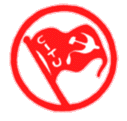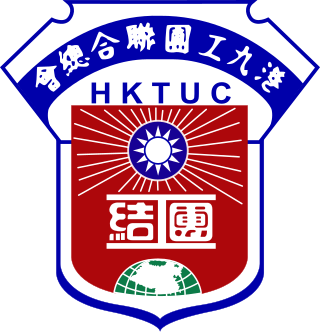A trade union or labor union, often simply referred to as a union, is an organization of workers whose purpose is to maintain or improve the conditions of their employment, such as attaining better wages and benefits, improving working conditions, improving safety standards, establishing complaint procedures, developing rules governing status of employees and protecting and increasing the bargaining power of workers.

The Norwegian Confederation of Trade Unions is a national trade union center, decidedly the largest and probably the most influential umbrella organization of labour unions in Norway. The 21 national unions affiliated to the LO have almost 1,000,000 members of a Norwegian population of 5 million. The majority of affiliated unions organizes traditional blue collar workers, but the largest affiliate is the Norwegian Union of Municipal and General Employees which makes up more than a third of all members. LO is affiliated to the ITUC and the ETUC.
A national trade union center is a federation or confederation of trade unions in a country. Nearly every country in the world has a national trade union center, and many have more than one. In some regions, such as the Nordic countries, different centers exist on a sectoral basis, for example, for blue collar workers and professionals.

Centre of Indian Trade Unions (CITU) is a national level trade union in India. The Centre of Indian Trade Unions is today one of biggest assemblies of workers and classes of India. It has strong presence in the Indian state of Tripura besides a good presence in West Bengal, Kerala and Kanpur. They have an average presence in Tamil Nadu and Andhra Pradesh.

The International Centre for Trade Union Rights (ICTUR) is "an organizing and campaigning body with the fundamental purpose of defending and improving the rights of trade unions and trade unionists throughout the world." ICTUR has accredited status with both the United Nations and the International Labour Organization.

The Hong Kong and Kowloon Trades Union Council is the third largest trade union federation in Hong Kong, after the Federation of Trade Unions (FTU) and pro-Beijing Federation of Hong Kong and Kowloon Labour Unions (FLU). It is affiliated with the International Trade Union Confederation.
Dieter Schulte was a German trade union leader. He was chairman of the German Confederation of Trade Unions (DGB) from 1994 to 2002.

The South African Agricultural Plantation and Allied Workers Union (SAAPAWU) was a trade union representing agricultural and plantation workers in South Africa.
The Performing Arts Workers' Equity (PAWE) was a small trade union in South Africa. It had a membership of only 365, but was affiliated to the Congress of South African Trade Unions. It merged with the Musicians Union of South Africa (MUSA) to form the Creative Workers Union of South Africa (CWUSA).
The Musicians Union of South Africa (MUSA) was a South African trade union. It had a membership of 700 and was affiliated with the Congress of South African Trade Unions. It merged with Performing Arts Workers' Equity (PAWE) to form the Creative Workers Union of South Africa (CWUSA).

The General Federation of Trade Unions (GFTU) is the sole national trade union center in Syria, it was founded in 1948. By a 1968 decree establishing a single-trade-union system, all trade unions in the country are required to be affiliated to the GFTU, and the GFTU has the power to dissolve the executive committee of any union.
The Association of Vatican Lay Workers is the sole trade union in Vatican City.
Trade unions in Albania have had an unstable existence in recent decades, mirroring the regional political turbulence in Albania. Since the 1991 defeat of the Albanian Party of Labour (APL), independent trade unions have asserted themselves, with two main national trade union centres; the United Independent Albanian Trade Unions (BSPSh) and the Confederation of Trade Unions (KSSh).
Before 1975, while under Portuguese rule, Trade unions in Angola existed primarily as "occupational syndicates" - operating welfare services, but banned from collective bargaining and strike action. Independent African trade unions were illegal, however, some underground or exiled unions existed, and were involved in the struggle for Angolan independence.
The Ministry of Employment and Labor announced on December 30, 2021, that as of 2020, 14.2% of workers were in trade unions in South Korea, a 1.7% increase from 12.5% in 2019. Korea's unionization rate peaked in 1989 at 19.8% and fell to 10% 2004.
The South African Trades Union Congress (TUC) was a national trade union federation in South Africa.
The Federation of Non-European Trade Unions was a trade union federation formed in South Africa in 1928.
The South African Federation of Trade Unions (SAFTU) is a trade union federation in South Africa. It was founded in 2017, and is the second largest of the country's main trade union confederations, with 21 affiliated trade unions organising 800,000 workers.

Relations between the European Union and Mercosur were established soon after the entry into force of the latter bloc.
Trade unions in Norway first emerged with the efforts of Marcus Thrane and the formation of the Drammen Labour Union in 1848 which organised agricultural workers and crofters. However, with Thrane's imprisonment and the suppression of the union in 1855, it was not until 1872 before a union was founded again, by print workers. In 1899 the first national federation, the LO, was founded. During this period interactions with trade unions in Denmark and Sweden played a great influence over the development of trade unions in Norway.






